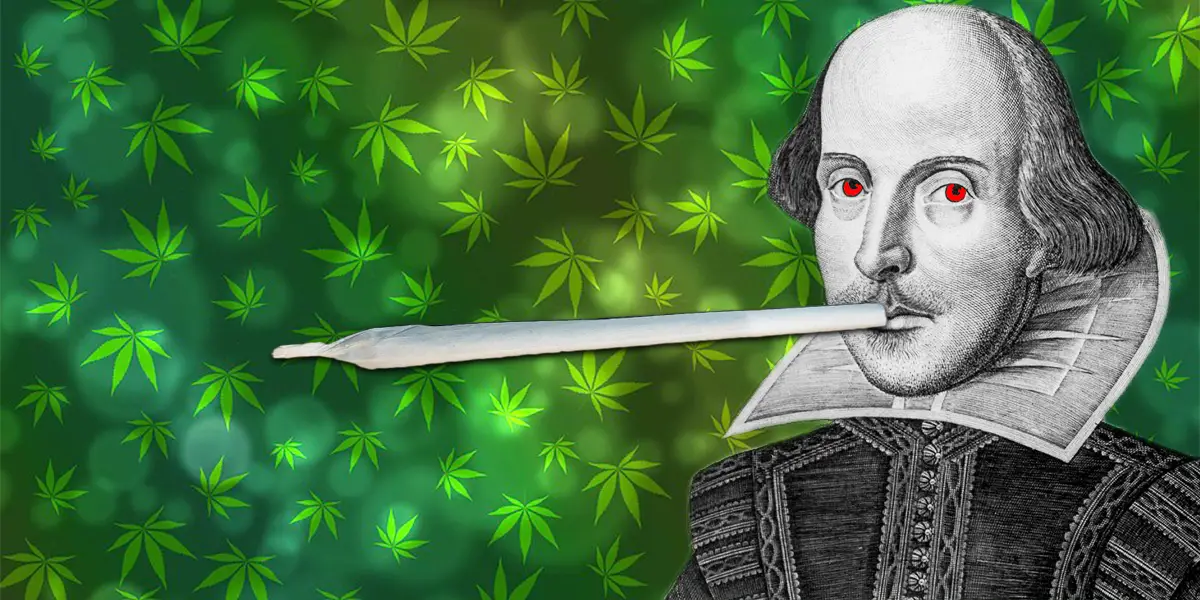Did Shakespeare Really Smoke Weed? Here’s What Science Says
Tags: News

By Mandy Froelich / Truth Theory
To inhale or not to inhale — that is the question!
Did William Shakespeare ever light up a bowl? While there isn’t a clear answer to this question, research published in 2015 indicates that he may have at one point. At the very least, Western Literature’s largest contributor likely knew of its hallucinogenic effects.
As the Smithsonian reports, the search to uncover the Bard’s recreational activities began in 2001. South African anthropologist Francis Thackeray used technology from a narcotics crime lab to determine the kinds of substances smoked in 400-year-old pipe fragments found in Stratford-upon-Avon and Shakespeare’s garden.
Some fragments contained residues of nicotine and cocaine, likely from Peruvian coca leaves. Four pipes found at an excavation site in the Bard’s backyard bore a similar chemical signature to that of cannabis. Despite these findings, the results were not conclusive. This is because there is no evidence that Shakespeare himself used the pipes, let alone smoked them.
To this day, Thackery argues that the pipe present compelling evidence. In two articles published in The Independent and the South African Journal of Science, he cites literary and historical evidence, as well as his scientific data.
Shakespeare’s Sonnet 76, for instance, refers to “invention in a noted weed,” as we all as an aversion to “compounds strange.” Thackery interprets these phrases as indicating the Bard’s possible preference for cannabis over cocaine. This is controversial because it is unclear when people began referencing cannabis as weed.
Over 5000 people have downloaded our free ebook “Growth Hacking Tips And Rituals For Optimal Living” CLICK HERE to get your free copy now
More recently, historians have suggested that Shakespeare’s likeness appeared on a 1598 botanical book. Among other herbs, the book covers a few flavors of tobacco. The connection is weak, at best.
We may never know if Shakespeare did or did not partake in cannabis. According to historian James Shapiro of Columbia University, the interpretation is “dubious.” He said, “We don’t know what Shakespeare did or didn’t do. Just because these pipes were found in his garden doesn’t mean his neighbor kid didn’t throw the pipes over the fence. There are a million possible explanations.”
What are your thoughts? Please comment below and share this news!
Leave Comment: